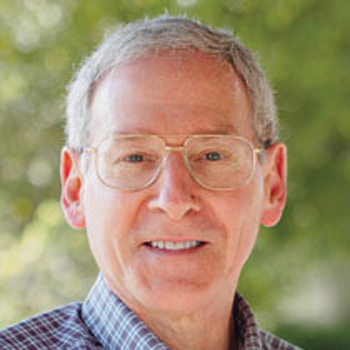Thorner stands as a giant in the golden age of yeast research
Saccharomyces cerevisiae is a species of yeast, a unicellular organism long used by bakers and brewers. As a eukaryotic single-cell microbe, yeast is also a great organism for research. Among the pioneers in studying yeast is , who has increased understanding of signal transduction in several diseases, using yeast as a research model.

— Jeremy Thorner
For his breakthrough research and other contributions to science, Thorner, a professor of biochemistry, biophysics and structural biology at the University of California, Berkeley, has won the ��������’s 2019 Herbert Tabor Research Award, which honors excellence in biological chemistry and molecular biology and contributions to the community of scientists.
Thorner grew up in Quincy, Massachusetts. He received his Ph.D. in biochemistry from Harvard University in 1972 under the guidance of , studying a model allosteric enzyme, E. coli glycerol kinase. As a postdoctoral fellow under at Stanford University, he studied T4 phage and E. coli DNA replication.
At a Lake Arrowhead Genetics Conference in Los Angeles, Thorner ran into Ira Herskowitz, an acquaintance from graduate school, who was studying mating-type switching in yeast. At Herskowitz’s suggestion, Thorner enrolled in the Cold Spring Harbor yeast genetics course, which led him to establish projects working with yeast in his own lab when he joined the faculty at UC Berkeley in 1974.
Along with an early student, David Julius, Thorner published seminal papers describing the mechanisms by which the peptide mating pheromones of yeast are produced. One of these factors is pheromone precursor prepro-alpha-factor, which is processed to its active form through the secretory pathway. Julius and Thorner discovered Kex2, a prohormone-processing endoprotease whose mammalian orthologs are important in maturation of proinsulin and other bioactive peptides. These discoveries contributed to making recombinant insulin for treating diabetes.
Using yeast, Thorner studied G-protein coupled receptors, or GPCRs, and their downstream signaling cascades. He cloned the first MAP kinase, Kss1, and showed that these kinases are downstream of GPCRs. This work helped illuminate certain pathways that are important in cancer treatment.
of the University of Basel nominated Thorner for the award, calling him “one of the giants of the golden age of yeast research.” Hall wrote in his nomination letter that Thorner “has continually made groundbreaking contributions of great importance to our understanding of hormone action, signal transduction and cellular morphogenesis at the biochemical level.”
Thorner is an outstanding mentor, according to Hall, “with at least seven former Ph.D. students and fifteen postdocs in faculty positions at distinguished universities.” He is also a longtime journal editor who “tirelessly writes lengthy emails to authors to ensure a fair, constructive review process,” Hall wrote.
Enjoy reading ASBMB Today?
Become a member to receive the print edition four times a year and the digital edition monthly.
Learn moreGet the latest from ASBMB Today
Enter your email address, and we’ll send you a weekly email with recent articles, interviews and more.
Latest in People
People highlights or most popular articles

Cedeño–Rosario and Kaweesa win research award
The award honors outstanding early-career scientists studying cancer, infectious disease and basic science.

ASBMB names 2026 award winners
Check out their lectures at the annual meeting in March in the Washington, D.C., metro area.

Peer through a window to the future of science
Aaron Hoskins of the University of Wisconsin–Madison and Sandra Gabelli of Merck, co-chairs of the 2026 ASBMB annual meeting, to be held March 7–10, explain how this gathering will inspire new ideas and drive progress in molecular life sciences.

Castiglione and Ingolia win Keck Foundation grants
They will receive at least $1 million of funding to study the biological mechanisms that underly birds' longevity and sequence–function relationships of intrinsically disordered proteins.

How undergrad research catalyzes scientific careers
Undergraduate research doesn’t just teach lab skills, it transforms scientists. For Antonio Rivera and Julissa Cruz–Bautista, joining a lab became a turning point, fostering critical thinking, persistence and research identity.

Simcox and Gisriel receive mentoring award
They were honored for contributing their time, knowledge, energy and enthusiasm to mentoring postdocs in their labs.

